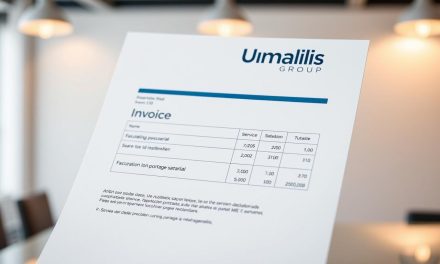Working on your own terms in France means control over your schedule, tools, and the clients you serve. The auto-entrepreneur route is popular because it offers fast setup and simple administration, while clear registration paths via INPI and URSSAF keep your business compliant.
To thrive, you need reliable processes for proposals, contracts, invoicing, and taxes. Learn when to register, how to get SIREN/SIRET numbers, and when PACTE rules require a separate bank account. These steps protect your cash flow and benefits.
This article walks you through choosing the right legal form, managing social contributions, and safeguarding IP. With practical resources and steady improvements, you can enjoy the flexibility and benefits France offers while staying aligned with client expectations.
Table of Contents
Key Takeaways
- Choose the right legal form early to shape taxes, insurance, and client perception.
- Register via INPI or URSSAF and obtain SIREN/SIRET to operate legally.
- Use clear contracts and evidence of autonomy to avoid misclassification.
- Set up invoicing, payment tools, and taxes to keep cash flow steady.
- Leverage resources for micro-entrepreneurs and refine processes as you grow.
How to succeed as an independent contractor in France today
Success starts with clear boundaries: set when and where you work, the tools you use, and the clients you serve. This practical control reduces risk of misclassification and lets you keep flexibility in your schedule.
What “independent” means: autonomy, control, and client relationships
You decide methods, rates, and schedules. You can serve multiple clients and subcontract when needed.
Documenting deliverables and using Statements of Work helps protect your status. Clear terms on communication cadence and decision-making keep relationships professional and compliant.
« Independence is shown by lack of day-to-day supervision, control over tools, and freedom to set prices. »
Why France is attractive: protections, incentives, and quality of life
French labor laws give predictable rules when you avoid subordination. Small businesses gain tax incentives and social protections that support stable growth.
Cities like Paris, Nice, and Bordeaux offer strong public services and a high quality of life — a real benefit for those balancing work and lifestyle.
- Branding: polished proposals and references build trust with businesses.
- Review: check terms regularly as client scopes change.
- Diversify: multiple sectors stabilize cash flow and open opportunities.
| Focus | What to do | Why it matters | Outcome |
|---|---|---|---|
| Autonomy | Document methods; set SOWs | Shows no subordination | Reduced misclassification risk |
| Client Relations | Agree communication cadence | Keeps expectations clear | Smoother delivery |
| Business Health | Build varied client base | Balances revenue | Stable cash flow |
Understanding French labor laws: independence vs. subordination
The core legal test in France asks who truly controls time, tools, and methods. This test decides whether a working relationship is marked by subordination or not.
The subordination test: who controls time, tools, and methods
If the client sets fixed hours, gives direct orders, or provides the equipment, courts may view the link as employment. That level of control points to employee status.
Key differences from employees: benefits, obligations, and risks
Employees receive statutory benefits, paid leave, and employer-covered social contributions. They work under company supervision.
Contractors and similar professionals keep the freedom to set schedules, use their own tools, and take multiple clients. They handle taxes and social insurance themselves.
- Keep proposals, SOWs, and invoices as evidence you operate on your own account.
- A written contract helps but does not decide status; behavior matters more.
- Long, tightly controlled engagements increase the risk of misclassification.
| Signal | Leans toward | Action |
|---|---|---|
| Fixed hours & supervision | Employees | Revisit scope; add deliverable-based terms |
| Own tools & multiple clients | Contractors | Keep records of other engagements |
| Client equipment only | Employees | Document independence or supply your kit |
« The real working conditions, not labels, decide status. »
Practical tip: Regularly review long contracts and keep proof of business activity. This reduces legal risk and reassures clients that the relationship fits French labor laws.
Choose the right business entity for your services
Picking the right legal structure shapes your taxes, liability, and how clients perceive your work. Start by matching expected revenue, risk tolerance, and plans to reinvest or hire. The correct form protects personal assets and improves credibility with larger firms in France.
Micro-entrepreneur (auto-entrepreneur): simplicity and limits
The micro-entrepreneur route is fast to set up and keeps bookkeeping light. It suits small-scale services and solo professionals who want straightforward declarations.
Know the thresholds: up to €188,700 for commercial sales and €77,700 for services. Exceeding these limits usually means moving to a different regime.
EI versus SASU / EURL: liability and scalability
EI keeps you lean while offering some personal-asset protections with the right options. SASU and EURL are single-shareholder companies that scale better and often reassure enterprise clients.
Choose SASU/EURL if you plan to grow, hire, or raise funds. These forms add administration but offer clearer separation between personal and business risk.
Partnerships and SARL: when they fit
SNC suits partners who accept personal liability; it’s simple but risky if disputes arise. SARL provides limited liability and a formal governance framework, often preferred for multi-owner ventures.
- Weigh administrative load, client perception, and whether you will reinvest profits.
- Use revenue trajectory and risk tolerance as the decision lens.
- Document a growth plan so you can switch entity types when needed.
| Structure | Best for | Key downside |
|---|---|---|
| Micro-entrepreneur | Small services, low admin | Turnover caps; limited deductions |
| SASU / EURL | Scaling, client trust | Higher admin; formal accounts |
| SARL | Multi-owner, limited liability | Rigid governance; more paperwork |
Practical tip: many professionals begin as micro-entrepreneurs and migrate to EI, SASU, or SARL as revenue, liability, or IP needs change. The right choice will boost credibility, manage risk, and simplify future tax steps in France.
Registration process: from online declaration to SIREN/SIRET
Registering your business online is the first concrete step toward legal operations in France. Use the INPI one‑stop portal for most company forms to submit an online form that notifies RNE/RCS and tax offices automatically.

INPI and the micro‑entrepreneur path
Micro‑entrepreneurs can register at autoentrepreneur.urssaf.fr by completing a simple form and uploading ID. After validation the system forwards details to registries and you receive your SIREN and SIRET numbers.
Activation, APE/EPA codes, and accounts
You will also get an APE/EPA code that classifies your activity. Activate your URSSAF account to manage declarations and contributions through the online system.
Professional setup and optional asset separation
Timeline is typically around 10 days for micro‑entrepreneurs. While you wait, prepare invoicing templates, banking details, and standard contracts so you can begin work quickly.
- Include your SIREN/SIRET on invoices to ensure compliance with larger clients.
- Keep digital backups of registration confirmations and codes for procurement requests.
- Consider asset separation (EIRL‑style), a dedicated business email, and standard proposal templates to boost credibility.
- Confirm your business classification early to avoid rework and set calendar reminders for recurring filings.
| Step | Action | Why it matters |
|---|---|---|
| Online declaration | Submit form via INPI or URSSAF | Notifies registries and tax offices automatically |
| Receive identifiers | Get SIREN/SIRET & APE/EPA | Required on invoices and official documents |
| Activate accounts | Set up URSSAF access | Manage contributions and declarations |
Turnover thresholds, status conditions, and compliance checks
Know your annual caps and obligations so growth doesn’t create unexpected administrative burdens.
Annual caps for goods vs. services and when to upgrade
Micro‑entrepreneur limits separate commercial activities and services: €188,700 for goods and €77,700 for services. Exceeding these figures or nearing them should trigger planning for a status change or new tax regime.
| Activity | Annual cap | Action when near cap |
|---|---|---|
| Commercial goods | €188,700 | Forecast quarterly; plan company form |
| Services | €77,700 | Track rolling 12-month income; prepare migration |
Maintaining independence: no subordination, no employees
To stay compliant with French laws, avoid day-to-day subordination. Keep control of your methods, schedule, and tools.
Under the simplified regime, hiring employees can change obligations. Many scale by using subcontractors rather than hiring payroll staff.
Practical compliance checks and admin impact
- Monitor a rolling 12‑month turnover and forecast income by quarter.
- Track services invoiced separately from product sales to spot threshold drift.
- Document SOWs, multi-client communications, and proposals to show autonomy.
- Crossing thresholds often means VAT registration, fuller accounting, and a move to SASU/EURL.
Tip: Run regular checks and keep a short watchlist of upcoming filings. If you want a practical primer on agreements and status, see our work agreement guide to align contracts and compliance.
Bank account setup to get paid fast and stay compliant
A clear banking setup speeds up receipts and keeps your paperwork audit-ready.
When a dedicated bank account is mandatory: corporate entities like SA, SAS, SARL and partnerships such as SNC must keep a separate business bank account. This separation makes bookkeeping clean and shows auditors you treat business flows distinctly from personal finances.
The PACTE law requires micro-entrepreneurs to open a separate account once turnover exceeds €10,000 for two consecutive years. Until that trigger, a personal account used solely for work is usually acceptable.
Set up process and quick tips
To open an account, gather registration docs, your SIREN/SIRET number, proof of identity, and a draft invoice with banking details. Many banks now accept online onboarding, which speeds the process.
- Use clear invoice numbers and SEPA details to reduce payment delays.
- Keep monthly reconciliations to spot late or partial payments early.
- Store bank attestations and an IBAN letter for fast vendor onboarding with larger businesses.
| Need | Required docs | Benefit | Who it helps |
|---|---|---|---|
| Separate account | SIREN/SIRET, ID | Cleaner books; easier audits | SA, SAS, SARL, SNC |
| PACTE trigger | Turnover proof, registration | Legal compliance after €10,000×2 yrs | Micro-entrepreneurs |
| Faster payments | IBAN, invoice template | Quicker vendor registration & verification | All businesses |
Final note: Well-organized banking practices help you get paid faster, simplify year-end reporting, and build trust with procurement teams. Small setup steps today reduce delays and questions tomorrow.
Invoice like a pro: required French mentions and formats
A clear, compliant invoice speeds up payment and avoids audit headaches. Make a template that matches your contract and SOW so scope, dates, and payment schedules align.
Core elements every French invoice needs
- Header: the word Facture and a unique invoice number in sequential order.
- Parties: full supplier and client names, addresses, and the relevant company number (SIREN/SIRET).
- Dates: invoice date and date of service or sale.
- Line items: clear descriptions, quantities, unit price HT, VAT rate and TVA amount.
- Totals: subtotal HT and total TTC.
- Payment terms: due date, accepted methods, late payment interest and fixed penalty per law.
Structuring service line items
List each service with a short description, quantity or hours, unit price HT, and VAT rate. This makes validation easy for your clients’ finance teams.
When VAT does not apply
If you are not VAT-registered as a micro-entrepreneur, include the exact statement: TVA non applicable, art. 293 B du CGI. This avoids rejections and clarifies tax status.
Sector-specific mentions to avoid delays
Artisans must show their Répertoire des Métiers number. Liberal professionals add order or license details. Merchants include RCS info.
| Sector | Mandatory mention | Why it matters |
|---|---|---|
| Construction | Décennale insurance proof | Required for payment by contractors and to pass procurement checks |
| Artisans | Répertoire des Métiers number | Confirms professional registration and credibility |
| Liberal pros | Order/license details | Supports regulatory compliance and client trust |
Practical tips
- Include late payment penalties and early-payment discounts to support cash flow.
- Keep signed contracts and numbered invoices together so each bill ties to agreed deliverables.
- Test the template with a small client, then refine before using it for larger accounts.
Taxes and social contributions for independent contractors
Understanding how tax and social charges affect your take‑home pay helps you price work properly.
Income tax brackets and BIC vs. BNC regimes
France applies progressive income tax up to 45%. How you report income depends on activity type.
Craftspeople and merchants are usually taxed under BIC (industrial and commercial profits). Liberal professionals use BNC (noncommercial profits).
Each regime changes allowable deductions and how net taxable income is calculated.
Micro thresholds and real regimes: when they apply
The micro‑BIC/micro‑BNC regime simplifies filings. For services, the micro threshold is €77,700.
Exceeding thresholds forces a move to real regimes (simplified or normal), which require fuller accounting and let you claim real expenses.
Tip: switching can lower your overall tax bill when actual deductible costs grow.
URSSAF and Sécurité sociale des indépendants: how contributions work
Registration through INPI links you to the self‑employed social system. Use URSSAF to declare and pay contributions.
Contributions fund health, family benefits, and pensions. First‑year relief may be available for new businesses, easing cash flow.
Practical recordkeeping and pricing
- Separate business bank activity and save invoices and receipts.
- Reconcile monthly so income, taxes, and contributions stay accurate.
- Build tax and contributions into your rates so margins remain healthy after statutory charges.
| Item | Rule | Action |
|---|---|---|
| Income tax | Progressive up to 45% | Forecast annual income; set aside tax reserves |
| Micro threshold (services) | €77,700 | Monitor rolling 12‑month revenue; plan migration if needed |
| Social contributions | Paid via URSSAF; first‑year relief possible | Register early; budget monthly payments |
Review annually
Revenue patterns, family situation, and thresholds change. Revisit your regime each year to stay efficient and compliant.
VAT obligations: thresholds, rates, and invoicing impacts
VAT affects pricing, cash flow, and the invoices you send. In France, you must register once annual services income exceeds €34,600 or commercial activity passes €86,900.
Rates and when to charge VAT
The standard VAT rate is 20%. Reduced rates of 10%, 5.5%, and 2.1% apply depending on the goods or services supplied.
Check the category of your work to pick the correct rate and avoid mistakes on client bills.
Invoicing changes and transitions
After registration you must add your VAT number and show the VAT amount on each invoice. Micro‑entrepreneurs who remain below thresholds must include TVA non applicable, art. 293 B du CGI.
If you cross a threshold mid‑year, register promptly and update templates. Notify clients and apply VAT from the official activation date to avoid disputes.
- Monitor rolling turnover and set alerts for thresholds.
- Update invoice templates immediately after registration.
- Keep precise VAT bookkeeping to protect cash flow, especially with long payment terms.
| Trigger | Action | Why |
|---|---|---|
| Services > €34,600 | Register for VAT | Must charge VAT on invoices |
| Commercial > €86,900 | Register for VAT | Standard business VAT rules apply |
| Below thresholds | Use non‑applicable TVA statement | Simpler reporting for small businesses |
Remember: some activities are VAT‑exempt and that affects what appears on the invoice. Many businesses expect VAT‑compliant invoices to recover input VAT, so staying correct also supports vendor selection and aligns with local labor laws. Periodic review with a tax advisor is a smart safeguard as your activity grows.
Contracts, IP, and misclassification risk management
Contracts that stress outcomes over methods help preserve professional autonomy and reduce legal exposure.
Crafting compliant agreements that reflect real autonomy
Draft a short contract focused on deliverables, acceptance criteria, and timelines.
List measurable outcomes and avoid step-by-step instructions about how work is done.
Avoiding subordination in tools, schedules, and supervision
Keep clauses showing the worker supplies tools and sets hours.
Limit mandatory on-site days and detailed supervision clauses that mirror employment.
- IP basics: state who owns pre-existing IP, assign newly created IP, or grant a defined license to the client.
- Change control: require written amendments for scope or long-term commitments to prevent implicit employee-like ties.
- Operational safeguards: work for multiple clients, use personal equipment, and keep business email under your domain where possible.
Warning: a label saying “contractor” does not prevent authorities from finding misclassification. Courts and inspectors examine real control and daily practices.
« Well-structured agreements and clear records protect both contractors and companies from disputes and penalties. »
Review templates annually with legal counsel to reflect local rules and reduce future risks.
Getting paid by clients in France and abroad
Getting paid reliably means matching client habits with payment tools that keep cash flow steady.
Common methods in France include SEPA bank transfers, paper checks, and digital wallets like PayPal or Wise. Each affects speed, fees, and reconciliation in different ways.
Practical comparisons
| Method | Speed | Fees & notes |
|---|---|---|
| SEPA transfer | 1–2 business days | Low fees; use IBAN for smooth processing |
| Checks | 3–10 days | Slower clearing; manual reconciliation |
| Digital wallets | Minutes to 1 day | Higher FX or platform fees; instant access possible |
Cross-border realities and best practices
Expect FX spreads, intermediary bank fees, and longer settlement times for international payments. Plan cash flow around likely delays.
- Set clear terms: specify currency, IBAN/SWIFT, and due dates on every invoice to get paid faster.
- Standardize templates: include PO numbers, SOW refs, and acceptance confirmations.
- Use platforms: centralize invoicing and euro payments to cut hidden costs and ease reconciliation.
- Consolidate data: track payments across multiple clients to improve forecasting and reduce late-payment risk.
Tip: offer multiple payment options but guide clients toward SEPA or platforms that minimize fees for both sides. Keep records tidy for tax reviews and to support decisions about which clients to prioritize.
Insurance, benefits, and risk mitigation for contractors
A clear plan for insurance and savings makes slow months manageable and keeps clients confident.

Professional coverages matter. Start with professional indemnity to cover errors and omissions. For construction work add décennale insurance as French law and many clients require it.
Health, pension and income planning
You manage health care and pension contributions through the self‑employed social system. There is no statutory unemployment or paid leave, so you must build these into your fees.
Practical actions: set aside reserves for sick days and vacations. Review pension contributions and benefits annually.
- Keep policy certificates and claims procedures in a central folder for client due diligence.
- Negotiate contract limits so indemnities align with your cover and prices.
- Bundle coverages when possible for lower premiums and single renewal dates.
| Need | Typical cover | Why it matters | Action |
|---|---|---|---|
| Professional errors | Professional indemnity | Protects fees and reputation | Maintain adequate limits; renew yearly |
| Construction work | Décennale | Legal and client requirement | Buy before starting on-site work |
| Income gaps | Savings / income protection | Buffers downtime and health events | Automate transfers to a reserve account |
« Proactive risk planning preserves reputation and long‑term earning capacity. »
Conclusion
Finish strong, with a clear playbook that keeps your practice legal, paid, and ready to grow.
Keep control of methods and deliverables, use outcome-focused contracts to reduce misclassification risk, and document SOWs and IP terms.
Choose the right entity, register to obtain SIREN/SIRET, and open a separate bank account to streamline payments and reconcile quickly.
Factor VAT, income tax, and social contributions into pricing so net income stays healthy. Maintain professional insurance and simple reserves to manage risks.
Build relationships with companies and clients who respect autonomy and local labor laws. As income rises, revisit your form and obligations to stay efficient and scalable.
With disciplined processes and care, an independent contractor in France can build a durable business, get paid on time, and protect long‑term benefits.
FAQ
What does being a self-employed professional in France mean?
It means you run your own activity, decide your schedule, choose clients, and manage tools and methods. You must register with the appropriate authorities, issue correct invoices with SIREN/SIRET, and meet tax and social security obligations while avoiding any situation that looks like employer control.
How can I tell if my relationship with a client risks being classified as employment?
French courts focus on subordination: who sets hours, supervises work, and provides equipment. If a client controls your methods, imposes strict schedules, or disciplines you, that raises misclassification risk. Use clear contracts, multiple clients, and visible autonomy to reduce exposure.
Which business structure should I choose for my services?
For low-cost simplicity, many start as a micro-entrepreneur (auto-entrepreneur). For greater liability protection and growth, consider SASU or EURL. EI suits solo operators who accept personal liability. Choose based on turnover, risk, and plans to hire or scale.
How do I register my activity and get a SIREN or SIRET number?
Register online via the relevant portal (URSSAF for micro status, or guichet-entreprises.fr for companies). After filing, you receive SIREN and SIRET identifiers and an APE/NAF code. Activate your accounts for social contributions and tax reporting soon after.
What revenue limits apply to the micro-entrepreneur regime?
Annual caps differ by activity: sales of goods versus services. If you exceed thresholds, you must switch to another tax regime. Track turnover carefully and plan transitions to a standard regime to stay compliant.
Do I need a separate bank account to get paid?
Yes: if your annual turnover surpasses €10,000 for two consecutive years under PACTE rules, a dedicated professional account becomes mandatory. Even below that, a dedicated account helps with bookkeeping and tax filing.
What must appear on a legally valid French invoice?
Essential elements include your name or company, SIREN/SIRET, client details, invoice date and number, description of services, HT/TVA/TTC values, and payment terms. Sector rules may require extra mentions for craftsmen or liberal professions.
What if I’m not VAT-registered?
If you fall under the franchise en base de TVA, add the note “TVA non applicable, art. 293 B du CGI” on invoices. Monitor turnover thresholds because crossing them triggers VAT registration and different invoicing rules.
How do income tax regimes differ for service providers?
Revenue classified as industrial and commercial profits (BIC) differs from noncommercial profits (BNC). Micro regimes apply simplified tax and contribution calculations below thresholds; the réel regime involves detailed accounting and possible deductions.
How do social contributions work for self-employed professionals in France?
Contributions to URSSAF and the social protection system fund health, family allowances, and retirement. Rates and calculation methods depend on regime and turnover. Register early and declare revenues regularly to avoid penalties.
When must I register for VAT and what rates apply?
VAT registration becomes mandatory once you exceed the thresholds for your activity. Standard, reduced, and sector-specific rates apply depending on the goods or services you supply. Registration affects invoice wording and accounting duties.
How can I reduce the risk of intellectual property disputes with clients?
Draft clear contracts that specify IP ownership, licensing terms, and deliverable acceptance. Stipulate whether rights transfer upon payment and include confidentiality clauses for sensitive work.
What contract clauses show my work relationship is not an employment one?
Include clauses emphasizing project-based scope, independent tools, freedom to subcontract, absence of hierarchical control, and multiple-client activity. Avoid wording that implies mandatory schedules or direct supervision.
What payment methods do clients commonly use in France and internationally?
Bank transfers, SEPA payments, credit cards, and checks remain common in France; digital wallets and international wire transfers are used for cross-border work. Specify currency, fees, and payment terms in contracts to reduce disputes.
How should I handle cross-border payments and currency differences?
Use clear invoicing currency, state who bears transfer fees, and consider platforms like Wise or TransferWise for lower conversion costs. Account for payment delays and VAT or withholding rules that may apply across borders.
What insurance do professionals need in France?
Professional indemnity (responsabilité civile professionnelle) is essential for many sectors. Construction and health services require sector-specific coverage. Insure against liability, data breaches, and business interruption where relevant.
How do I plan for health care and retirement as a self-employed person?
Contribute to the French social security system for healthcare and retirement entitlements. Consider complementary private insurance or retirement savings plans to top up state provisions, especially during periods of lower revenue.
What steps protect me during downtime or unpaid invoices?
Keep an emergency fund, use written contracts with payment terms and late fees, and run credit checks on new clients. Consider legal insurance (protection juridique) to cover debt recovery and disputes.
Who enforces rules on subordination and misclassification in France?
French labor courts and inspection authorities assess working relationships. They can reclassify a contract as employment if they find subordination, which can trigger back-payments for social contributions and taxes.
Where can I find reliable resources for registration, taxes, and compliance?
Official sites like service-public.fr, urssaf.fr, and impots.gouv.fr provide guidance. Professional chambers (Chambre de Métiers et de l’Artisanat) and business advisors can help with sector-specific questions.





